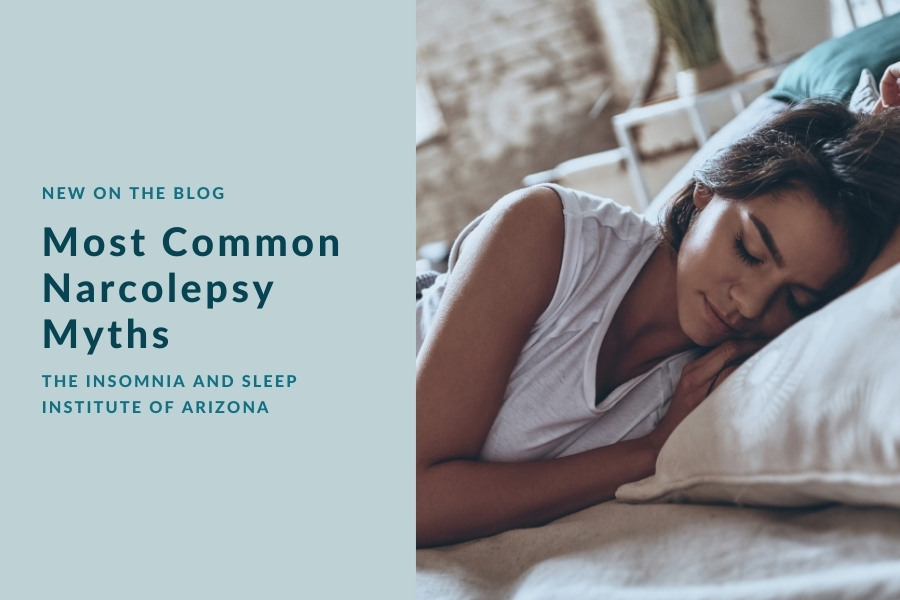Narcolepsy has served as fodder for jokes in the media for decades, but this neurological disorder is nothing like it is often portrayed. In fact, it is a common complaint at The Insomnia and Sleep Institute of Arizona, the place that sets the standard in sleep medicine in the state. Here, every consultation is held with a sleep specialist who can diagnose sleep disorders. Patients enjoy unprecedented staffing levels with three sleep specialists, a physician assistant with a Masters in Sleep, and respiratory therapists.
Unfortunately, while the general public has some information on sleep disorders like insomnia and sleep apnea, most people do not know the truth about narcolepsy unless they or someone close to them has been diagnosed with it. It is often thought that narcolepsy is a rarity, but this disorder that affects how the brain handles the sleep-wake cycle and causes symptoms like sudden muscle weakness and excessive daytime sleepiness, is actually relatively common. About one in 2,000 people have been diagnosed with narcolepsy but (much like most other sleep disorders) there are likely many more that go undiagnosed. The National Institute of Neurological Disorders and Stroke (NINDS) estimates that narcolepsy is routinely either missed entirely or misdiagnosed—which, of course, means that these people are also not getting the treatment they need.
Narcolepsy Myths Debunked
Another common misconception is that kids don’t have narcolepsy. In actuality, the National Sleep Foundation reports that narcolepsy typically starts to present in childhood/adolescence. The Cleveland Clinic has reported narcolepsy in children five years old, but most narcolepsy patients are a bit older when they are diagnosed. Of course, just like with adults, narcolepsy in children is probably largely underdiagnosed. One additional reason for this is that narcolepsy can look different in kids compared to adults. For example, a child with narcolepsy might by hyperactive during the day instead of drowsy—this is a way for them to try to stay awake. In some cases, this symptom is misdiagnosed as ADHD.
Sadly, another myth regarding narcolepsy is that these people are lazy or unmotivated. It is unsurprising that a person with low energy levels (and little control over those energy levels due to sleepiness) can be seen in this negative light. When these patients are eventually diagnosed, oftentimes their partners or bosses might not believe the diagnosis (since, again, a myth is that narcolepsy is extremely rare). Someone who appears sleepy or uninterested is not often considered determined or high-achieving, so this can negatively affect many aspects of their life.
The Truth About Narcolepsy
There is a myth that someone with narcolepsy just needs the right amount of sleep and that when this happens, they will be “cured.” Narcolepsy is not connected to how long someone sleeps. In fact, many with narcolepsy patients actually get the right amount of sleep every night and are still fatigued the next day. Remember that narcolepsy is a neurological disorder, so it is the brain failing to correctly control sleep and wakeful periods. A person might get the signal to sleep at the wrong time no matter how well-rested they might be. Since sleep deprivation is so prevalent in our society, it’s easy to assume that getting enough sleep is a cure-all.
Finally, one of the most common myths is fed by the media and misrepresents narcolepsy: that the person will suddenly pass out while doing something like driving or talking. This is often played for laughs in movies and on television, but in reality, such an event is exceptionally rare. The most common symptoms of narcolepsy include excessive sleepiness during the day, cataplexy, sleep paralysis when a person is falling asleep or first waking up (not randomly when they are fully awake), hallucinations during these same periods, and disrupted sleep/insomnia.
Life with Narcolepsy
Since many people wrongly think those with narcolepsy routinely fall asleep at inopportune times, they may also think someone with narcolepsy cannot drive or isn’t allowed to. That isn’t the case. Someone with narcolepsy who is being treated by a sleep specialist is certainly legally able to drive. The Narcolepsy Network reports that most states prefer drivers to self-report any conditions that might render them unable to drive, but actually, narcolepsy isn’t even mentioned as a reason for a license revocation.
If you or your child struggles with narcolepsy or any sleep disorder, start working with a sleep specialist today. Contact The Insomnia and Sleep Institute by calling the office, or complete the online form for the quickest response.





